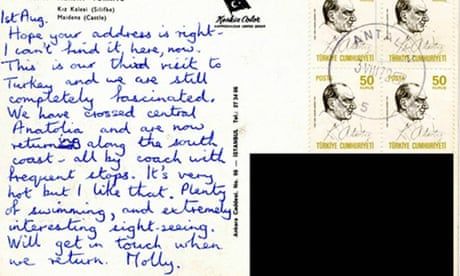
Students of literature in future will have far less to go on if handwriting becomes obsolete, writes Dr Claire Nicholson. Plus letters from Michael Daley, Alan Sekers, Alan Gough, Dr Emile de Sousa and Marie Paterson
The loss of handwriting skills has far-reaching implications beyond the ability to guide a pen across paper (Signature moves: are we losing the ability to write by hand?, 21 January). I have been privileged to introduce students to the manuscript of Virginia Woolf’s essay Women and Fiction, which was later revised and expanded to become the celebrated text A Room of One’s Own. The impact of seeing her hastily scrawled words in purple ink with crossings-out as she sought the perfect word is a joy to witness and something that will never be matched by the typewritten word. What will a literary archive look like to the students of the future, if it only exists as typed words on a screen? I doubt it could ever reach the same level of excitement.
Dr Claire Nicholson
Chair, Virginia Woolf Society of Great Britain
• The disappearance of handwriting is alarming for all the reasons given by Christine Rosen – but while hand-forming letters certainly increases cognitive skills, so too can tracing them. An elderly art school colleague once explained how he’d been trained to draw capital Roman letters as a student at the then South Kensington art school (later the Royal College of Art). Students had been required to trace a large sample Roman capital letter on arrival every morning – until they no longer needed to do so, having internalised all its properties, at which point daily tracings of the next letter began. Every student left the school able to draw Roman letters freehand. It would seem that even a thing drawn, even “mechanically”, is a thing better remembered and understood.
Michael Daley
Director, ArtWatch UK